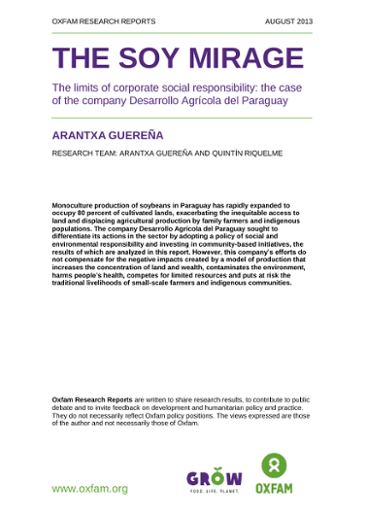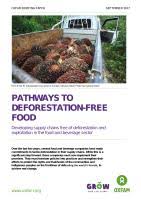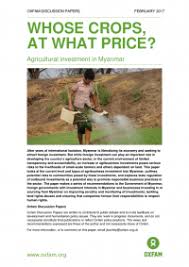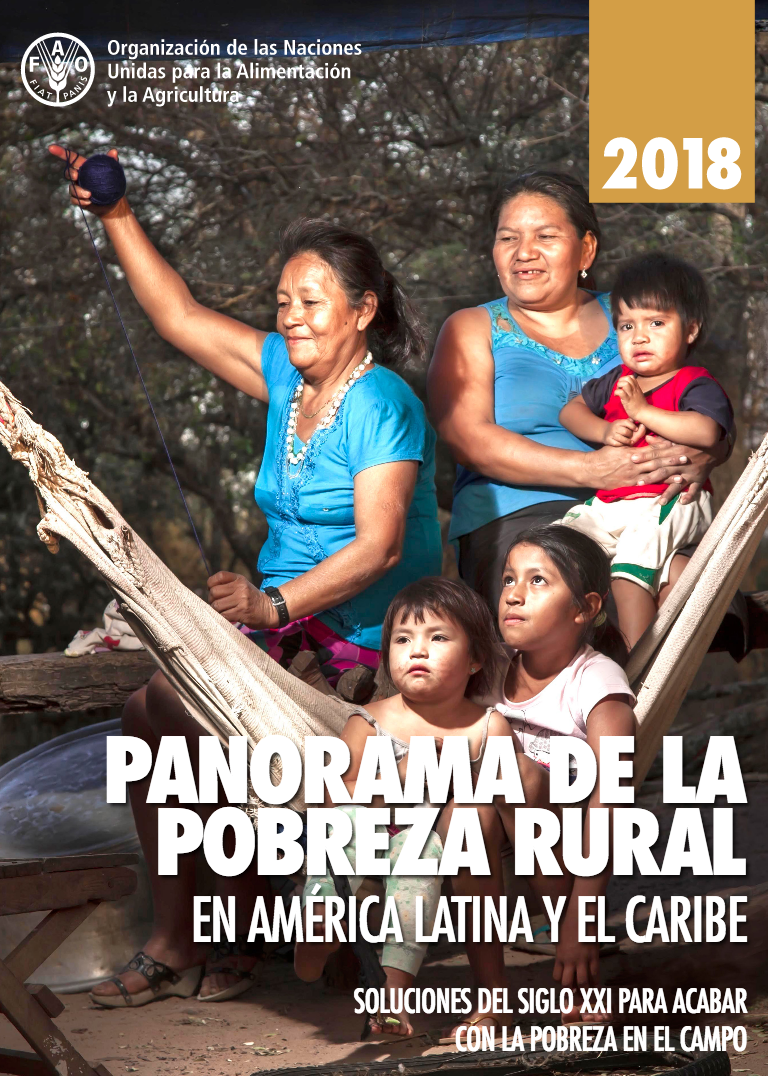The Soy Mirage: The limits of corporate social responsibility – the case of the company Desarrollo Agrícola del Paraguay
Soybean production in Paraguay now takes up 80 per cent of cultivated land, displacing agricultural production by family farmers and indigenous populations and deepening inequality in access to land.












